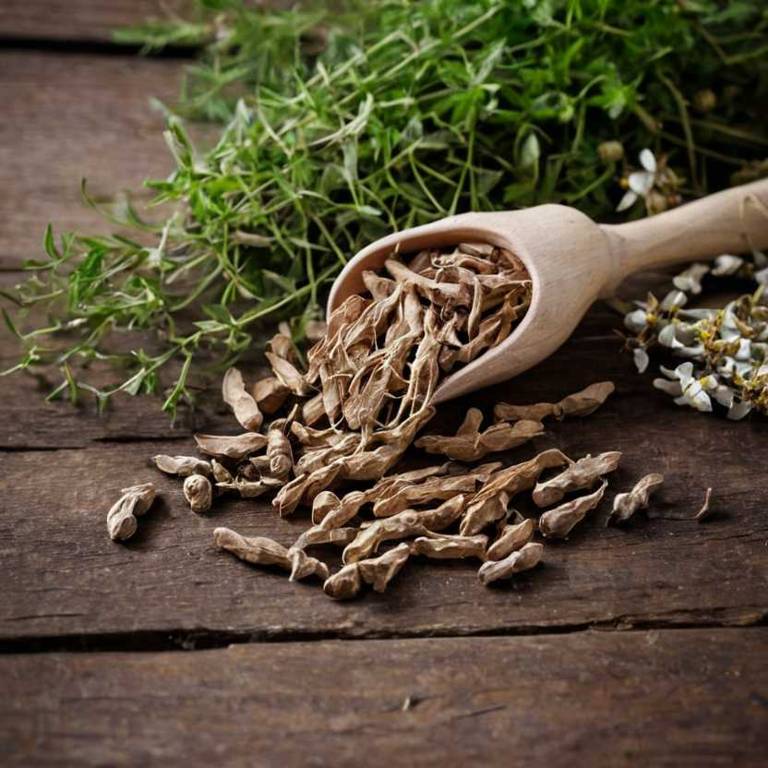By Leen Randell
Updated: Jul 05, 2024
What Are The Medicinal Properties Of Prunus Serotina (Black Cherry)?

Prunus serotina, also known as black cherry, has health benefits such as reducing inflammation, alleviating pain, and fighting cancer cells.
The medicinal constituents of black cherry include anthocyanins, flavonoids, and salicylic acid, which are responsible for its anti-inflammatory, antioxidant, and analgesic properties. The bark and leaves of the plant can be prepared as teas, tinctures, or capsules for medicinal use. Side effects may include digestive issues, allergic reactions, and interactions with blood thinners.
To safely use black cherry, consult with a healthcare professional and follow recommended dosages.
This article explains the health benefits, active constituents, medicinal preparations, possible side effects, and precautions related to Prunus serotina.
What are the health benefits of Prunus serotina?
Prunus serotina, also known as black cherry, has health benefits such as antioxidant and anti-inflammatory properties.
The bark and fruit of the tree have been traditionally used to alleviate pain and reduce fever. It contains salicin, similar to aspirin, which can help reduce inflammation and improve circulation.
Additionally, black cherry is rich in vitamins A and C, potassium, and fiber, making it a valuable addition to a healthy diet for maintaining overall well-being.
Here's a detailed article about the 10 health benefits of Prunus serotina.
What are the active constituents of Prunus serotina?
Prunus serotina, also known as black cherry, has active constituents such as prunasin and amygdalin, which are cyanogenic glycosides.
These compounds break down into cyanide and benzaldehyde, exerting analgesic and anti-inflammatory effects.
Additionally, the bark of the plant contains salicylic acid, a compound similar to aspirin, which has been shown to have anti-inflammatory and pain-relieving properties, making it a potential natural remedy for various health conditions.
Here's a detailed article about the 10 active constituents of Prunus serotina.
What are the medicinal preparations of Prunus serotina?
Prunus serotina, also known as black cherry, has medicinal preparations such as the bark, leaves, and fruit.
The bark is used to make a tonic that helps with fever and coughs. The leaves are used to make a tea that helps with arthritis and rheumatism.
The fruit, also known as wild cherry, is used to make jams, preserves, and a syrup that is used to treat coughs and sore throats.
Here's a detailed article about the 10 medicinal preparations of Prunus serotina.
What are the possible side effect of using Prunus serotina improperly?
Improper use of Prunus serotina, also known as black cherry, increases the chances of experiencing side effects such as digestive issues, nausea, and diarrhea.
The plant's anthocyanin content can also interact with medications, including blood thinners and diabetes medications, potentially exacerbating underlying health conditions.
Furthermore, high doses can cause headaches, dizziness, and fatigue, highlighting the importance of consulting a healthcare professional before using black cherry for medicinal purposes.
Here's a detailed article about the 10 most common side effects of Prunus serotina.
What precautions to take when using Prunus serotina medicinally?
Before using Prunus serotina, also known as black cherry, for medicinal purposes, you must take precautions such as consulting with a healthcare professional, especially if you have any underlying medical conditions or allergies.
It is also essential to be aware of the potential interactions with prescription medications, such as blood thinners, diabetes medications, and blood pressure medications.
Additionally, ensure you purchase from a reputable supplier to avoid contamination or adulteration.
Here's a detailed article about 10 precautions to take when using Prunus serotina.